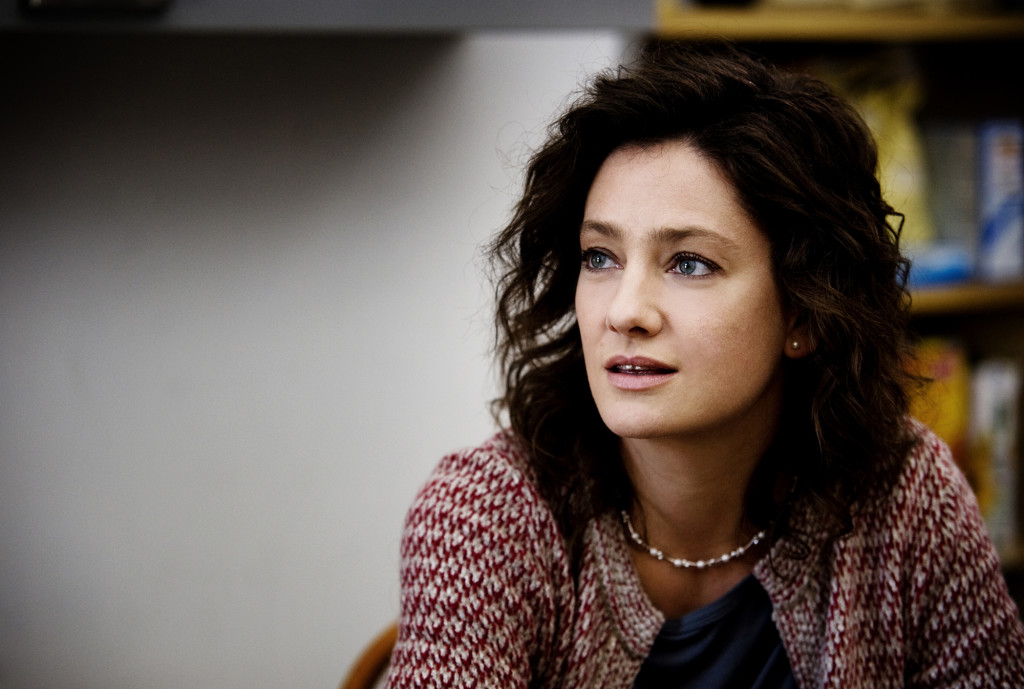Dutch writer Herman Koch wrote “The Dinner” in 2013. His novel examined European society’s hypocritical facade of morality. Two brothers and their respective wives get together for regular family dinners, which all of them secretly hate. The brothers operate out of very polarised schools of thought. Paolo and Clara are intellectual and righteous. They live in a humble apartment. Paolo works hard as a children’s doctor to provide for Clara and their son, Michele. Paolo’s taller and more dominating brother, Massimo, is a criminal lawyer. Massimo doesn’t think twice about defending a guilty criminal, much to Paolo’s disdain. What happens when Michele, and Massimo’s daughter Benni, are caught on surveillance camera, committing a cruel and heinous crime? The crime forces the brothers to question their own moral stances, and in turn makes us, the viewers, question ours as well.
Director Ivano De Matteo does well in building a world that buys the images these characters have created of themselves. He then takes these false perceptions, twists their arm and asks the difficult questions. How well do we know where we stand morally, at our very core? How much of what we believe ourselves to be, is what we think we should be? And the age-old moral dilemma, of course- if you commit a crime that no one is around to witness, is it a crime? The movie tackles some profound ethical issues. The characters surprise you. They aren’t all likeable which makes the film essentially realistic. “The Dinner” is filmed in the smart and chic neighbourhoods of Rome that house the restaurant, Paolo and Massimo’s homes and offices, and a teen house party. The visuals here are all indoor ones. The focus is on the spaces framed by rigid structures of walls, doors and windows. The framing is a metaphor for the societal mores that shape an individual, both willingly and unwillingly. I like this “indoor” portrayal of Rome. Bookcases, kitchen tables and cobbled streets. It is very, everyday civilian without a tourist attraction in sight.
The performances in the film are very strong. The incredibly beautiful Giovanna Mezzogiorno gets transformed from a self-assured, strong, Italian woman into a frenzied and vulnerable mother. You might recognise her as the object of Javier Bardem’s obsessions in “Love in the Time of Cholera”, but more memorably as Giulia in “L’Ultimo Baccio/The Last Kiss”. She is just as strikingly beautiful here as she was in “L’Ultimo Baccio”. She is just so pretty. Insert long sigh here. She is, of course, a fantastic actress, as well. Alessandro Gassman plays the seemingly cunning, criminal lawyer with perfected elegance. His stature, contained in the straight lines of his suit, conveys the logical rigidity of his moral code. Gassman’s character is my favourite in the film. His Massimo takes the viewer from the ugliness that is underneath the surface of pretentious social manners, all the way to the genuine, and truly fair, creamy centre. The two teenagers are annoying as they are supposed to be. Your regular Beiber-Hadid-Miley-Jonas types. There are a few hysterical breakdowns that make you cringe but for the most part De Matteo subscribes to an understated method of storytelling.
“The Dinner” holds up a mirror to a self-proclaimed righteous society. I definitely would have liked to see the differences between the brothers be fleshed out more. I would have liked to see more of their beliefs and thoughts in action, for a meatier comparison! It is also slightly jarring to see Paolo and Clara turn on Massimo so radically at the end. There probably is a lot of exposition leading up to that point in the novel, but it definitely is skipped over in the film. I would still recommend watching “The Dinner” though. It is entertaining and sophisticated. It will make you think. And if you are anything like me, it will make you want to scour the city for an English copy of Herman Koch’s original novel.
“The Dinner” concluded my stint at this year’s VIFF. The films this year were so wonderfully diverse. They spanned genres and languages and times and landscapes. Some were big names from TIFF and Cannes, while others were smaller and riskier ventures. The volunteers put in great efforts to get the festival running smoothly. The VIFF always brings the city together for the best excuse ever- movies! Plus it is a great way to travel the world without leaving the comforts of this beauteous city of ours. Japan, Iran, Mexico, Syria, USA, India, France, Taiwan. You name it. VIFF took us there this year. I highly recommend getting in on the party next year. VIFF is a very satiating experience!
-Prachi Kamble

